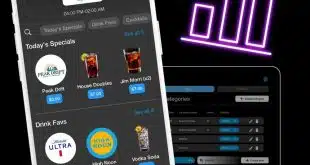NACHA, the Herndon, Va.-based organization that establishes rules for automated clearing house transactions, is working on a business case for a new payment type that would allow merchants to collect all consumer checks they receive and convert them into electronic funds transfers in a back room or other central location. When completed, the business case will go before NACHA's rules and operations committee and then on to the board. If the board greenlights it, back-office conversion would go into pilot. Although NACHA says no timetable has been set for this process, some observers say they hope to see a pilot in progress by the end of the year. NACHA officials say it could take anywhere from three to nine months to build the business case, a process that only began in February. The concept of ACH-based back-office conversion has caught the imagination of merchants and banks since NACHA first proposed it last fall (Digital Transactions News, Sept. 30, 2004). The organization's existing e-check category for the point of sale, POP, has failed to win widespread adoption among retailers, chiefly owing to its costs. Although ACH e-check transactions cost only pennies, they require some re-configuring of the point-of-sale as well as careful training of cashiers, who must keep in mind that the payments require customer sign-off each time and who must also cull out checks written on business accounts, which aren't eligible for conversion. Dillard Store Services Inc., a chain of 322 department stores, says it would have to install check scanners at each of 66 registers in each store, at cost of $2,000 for each point of sale. This, on top of the training costs, means “POP is just not a viable option for us,” says Bob Reeves, assistant treasurer at the Little Rock, Ark. company, who participated in a panel discussion of back-office conversion at a NACHA trade show last week in San Antonio, Texas. That's despite the fact that about 20% of Dillard's transactions are on checks, Reeves figures. As currently conceived, by contrast, back-office conversion would look more like ARC, or accounts-receivable conversion, the type of e-check utilities, insurers, credit card companies, and other billers use to convert checks consumers send them to pay bills. As with ARC, checks would be converted in bulk without the need to get customer approval on each transaction. Rather, back-office conversion would adopt ARC's so-called notification-equals-authorization rule, in which periodic statements tell consumers what will happen to their checks and offer an opt-out. With back-office conversion, merchants might be able to do this by posting a sign at the checkout counter. Also, they would need to equip only one location in the store and would need to train far fewer personnel. Payments would settle the next day, as with other ACH transactions, but business checks would still be excluded. Only a handful of chains have tried POP since its introduction in 2000. Transactions totaled 219.3 million last year, up 8% over 2003. Other e-check categories, including ARC and WEB, which covers Internet transactions, have been far more successful. ARC has turned into a rocket, soaring 479% to reach 1.27 billion transactions last year. WEB grew 40% to 967.1 million transactions, according to NACHA. A NACHA spokesman says that should the back-office conversion method become a reality, it's not yet clear whether NACHA would replace POP with it or use it to complement POP. Merchants like Reeves say they might find back-office conversion more palatable. Among other benefits, he sees a chance to wring lower fees from his bank by consolidating check conversions. But the exclusion of business checks could pose complications in the back office. Says Reeves: “All that's going to do is add another step, and that's a world of hurt for us.” He also wants to know how much time merchants will have to destroy converted checks. Current ARC rules require check destruction within 14 days.
Check Also
Has the CCCA Reached the End of the Road?
With the odds against the Credit Card Competition Act coming to a vote before the …




